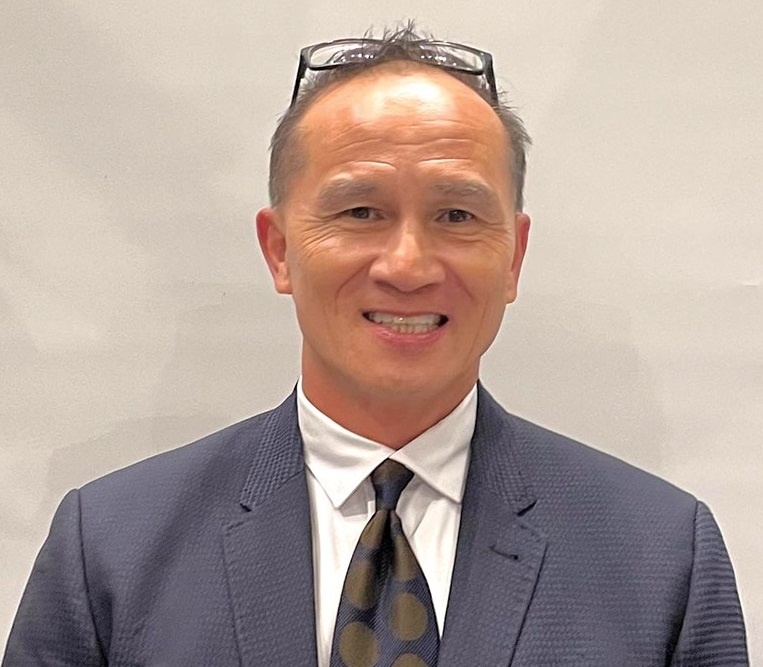Mobilising international finance for land security
In Vietnam, local businesses cannot mortgage land use rights (LUR) as security to a foreign lender. But this is allowed in our peer markets, and it is carried out with robust regulation, proper dignity, and thoughtful national protections. So, why are we behind the pack?
 |
| Darryl Dong-Principal country officer IFC Vietnam |
Vietnam’s restriction on land security for foreign lenders reduces available funding and increases borrowing costs to local companies. Basically, we are penalising the country and making it less competitive. It also makes it more difficult for the government to supervise foreign financing, since the parties simply find workarounds through complex structures to create security packages for loans because they cannot get on the ground security.
In Vietnam, where the non-performing loan (NPL) market is still not developed, this mortgage restriction is a showstopper for foreign NPL investors who want to bring us their capital and expertise. We need to put Vietnam’s land laws in line with global standards. The best time to plant a tree was 20 years ago, but the next best time is now.
If Vietnam intends to show the world that it means business, and that it deserves foreign capital, then we must solve the land use rights security issue. Our first proposal is a direct mortgage mechanism. This would allow local enterprises to pledge LURs and immovable assets directly to a foreign lender under certain conditions and restrictions, such as excluding certain types of land or, upon loan default, the loan security can only be enforced through the sale to a local party in order to ensure national security and Vietnam’s principle that foreign entities cannot own land.
We can revise the law to make it fair and workable for all parties. If a direct solution is too progressive for Vietnam, though, then our second proposal is a lighter touch – an indirect mortgage mechanism. In this approach, a foreign lender holds LUR security indirectly through a local security agent, which can be a domestic credit institution. The management and enforcement of the security is done by the security agent. Upon loan default, the agent would sell the security to repay the lender.
Both proposals comply with the existing principles of Vietnam’s land law, and no significant changes would be required in the current legal framework. In both cases, the foreign lender only receives the proceeds from a sale of the security. And there is already a precedent - build-operate-transfer power projects in Vietnam already allow indirect mortgage security for international investors. Enabling either of the direct or indirect solutions would mobilise greater and more efficient funding from foreign lenders for Vietnam.
That is the point of all this – to mobilise much-need international finance for growth and climate. These mortgage security solutions could lower interest rates by 30-50 basis points or more for local businesses.
In these solutions, Vietnam can include special restrictions for land and assets insensitive or protected areas. The nation can bring its land laws in line with global standards and include restrictions for the sovereign protections it needs. Some may argue that allowing mortgage security to foreign lenders would promote excessive borrowing and make foreign exchange difficult to manage. Not true. Vietnam already has very strict regulations on controlling foreign loans to businesses and credit institutions, and it does so via an integrated framework, which combines fiscal, monetary, exchange rate, and structural policies with capital flow management measures.
Most developing countries allow some form of mortgage security for foreign lenders, including many of our neighbours. Many allow a foreign lender to take possession of the land upon a loan default, with some countries adding certain restrictions. The point is that in many peer countries, local enterprises are allowed to mortgage land use rights, or land, to international lenders.
We have examples of other developing markets, such as Nigeria and the UAE, that allow foreign lenders to take security over land but allow enforcement only through a local agent or trustee, which is the same as our aforementioned second proposal. Vietnam is behind the curve and behind the times in land law.
Mortgaging LURs and immovable assets for international finance is a global practice, especially now that all countries are trying to mobilise capital for sustainable development. Money is fungible and it will go to where it is most business-friendly. Foreign capital will flow to the more progressive land law regimes.
However, our land laws are not progressive. Vietnam wants and deserves its share of that global finance. So, let’s modernise our land laws to get our share. The nation will be in good company, aligned with leading markets, when we revise our land law. You can count on it, you can bet on it, and when those revisions become new law, we will all bank on it.
 | Law on Land amendments to usher in positive changes The revised Law on Land, designed to ease bottlenecks in the real estate market, is also required to ensure synchronisation to improve the efficiency of land management and use. Scheduled to be approved by the National Assembly in 2023, the legislation will act as a driving force for Vietnam’s economy in the next period. |
 | Land law considerations for non-nationals With the current Law on Land, many foreign businesses have encountered multiple challenges related to real estate while investing in Vietnam. Pham Duy Khuong, managing director of ASL Law, explains why the country must remove these issues as soon as possible in order to keep Vietnam attractive. |
 | Clarifying rights of foreign individuals to own property in Vietnam Whether foreigners have the right to own their land and property in Vietnam and how they can get these rights are among the key concerns of many who wish to live and work in Vietnam long term. Valerie Teo, tax partner, and Nghiem Xuan Hong An, senior manager of Tax Services at Grant Thornton Vietnam, analyse the requirements. |
What the stars mean:
★ Poor ★ ★ Promising ★★★ Good ★★★★ Very good ★★★★★ Exceptional
Related Contents
Latest News
More News
- Citi economists project robust Vietnam economic growth in 2026 (February 14, 2026 | 18:00)
- Sustaining high growth must be balanced in stable manner (February 14, 2026 | 09:00)
- From 5G to 6G: how AI is shaping Vietnam’s path to digital leadership (February 13, 2026 | 10:59)
- Cooperation must align with Vietnam’s long-term ambitions (February 13, 2026 | 09:00)
- Need-to-know aspects ahead of AI law (February 13, 2026 | 08:00)
- Legalities to early operations for Vietnam’s IFC (February 11, 2026 | 12:17)
- Foreign-language trademarks gain traction in Vietnam (February 06, 2026 | 09:26)
- Offshore structuring and the Singapore holding route (February 02, 2026 | 10:39)
- Vietnam enters new development era: Russian scholar (January 25, 2026 | 10:08)
- 14th National Party Congress marks new era, expands Vietnam’s global role: Australian scholar (January 25, 2026 | 09:54)

 Tag:
Tag:



















 Mobile Version
Mobile Version